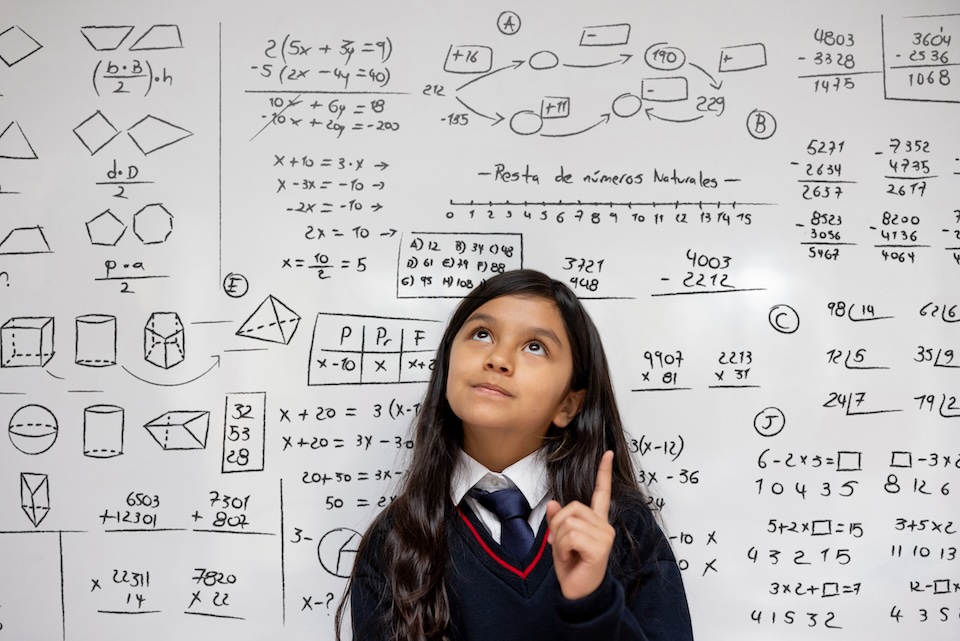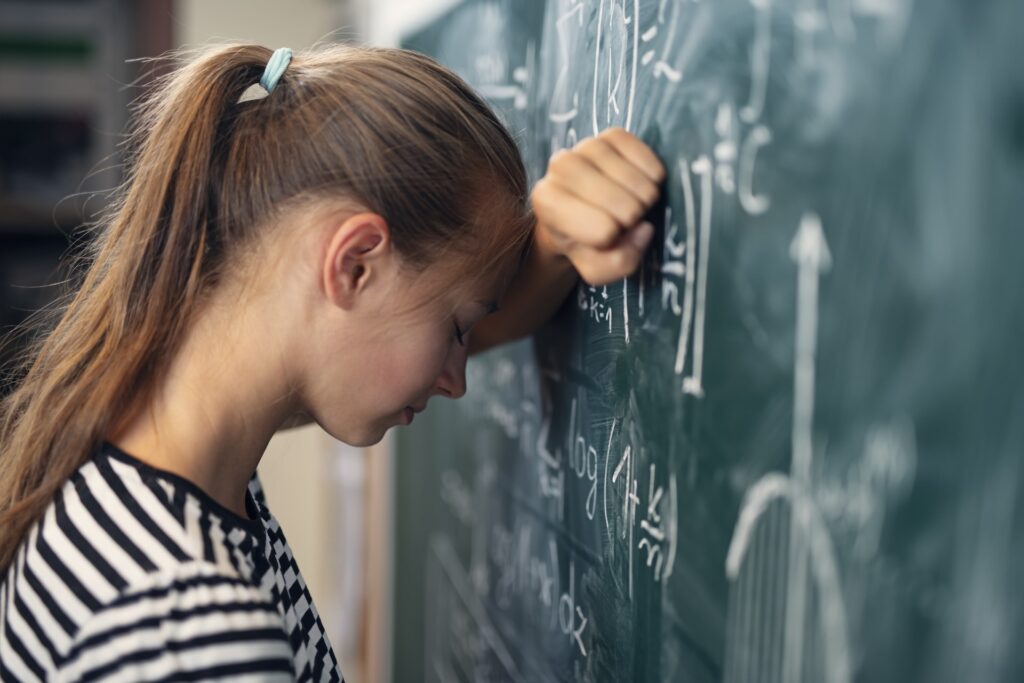How can you help your child build strong math literacy skills?
While reading skills are the foundation of literacy, math literacy skills—also known as numeracy—are less understood.
Literacy skills develop sequentially. First, students learn sounds and how sounds blend together, then letters and how letters work together to create words. Words work together to create sentences, and sentences combine into paragraphs. In essence, that is the foundation of how students build their reading literacy skills—a skill vital for all learning. In fact, reading skills play an important role in building math literacy skills.
What is Math Literacy?
Simply put, math literacy is the ability to problem-solve, reason, and analyze using numbers. It also means students can use numbers effectively, understand patterns, and apply logical reasoning to solve everyday problems. Math literacy allows students to understand math terminology (such as knowing that “sum” means addition and “difference” means subtraction) and decode what a question is actually asking. Math literacy is an essential skill for applying knowledge of math in real-world situations
Building Math Literacy Skills
Becoming math literate means grasping the fundamentals of math with ease, including addition, subtraction, multiplication, and division. It also means having a strong understanding of fractions by the end of fifth grade. Poor grasp of fractions can lead to struggles in more complex math concepts in the later grades.
Math literacy doesn’t happen overnight: it requires years of practice and application of math concepts. During adolescence, the brain’s ability to comprehend abstract thinking, visualization, and pattern recognition fully matures, which is often why once students reach high school, math concepts can begin to make more sense. Students who have a solid understanding of math basics easily grasp more advanced math concepts.
Challenges & Solutions
Building math literacy skills is not without its challenges. Students may struggle to recognize patterns or apply learned skills in new situations. Word problems are a common stumbling block, as students may struggle to interpret the question and identify the steps needed to reach a solution.
Abstract thinking is also an essential skill in math, yet it doesn’t come naturally to everyone. This is why extra support and encouragement are key for students who find math challenging. Learn more about math tutoring here.
Achieving math literacy can happen at any age. Students are math literate once they can confidently use math concepts, recognize patterns, and transfer skills to solve problems. Math literacy is more than just completing assignments—it’s a way of thinking and solving problems in everyday situations.
Here are some effective ways to strengthen these essential skills:
- Rebuild basic concepts.
- Practicing core mathematics, such as addition, subtraction, multiplication, division, and fractions, to build a solid foundation for tackling complex math skills.
- Fill math learning gaps early.
- The sooner students identify and address gaps, the greater the likelihood of becoming math literate.
- Relate math to real life.
- Math is everywhere, from cooking to home improvement to driving. Showing students how math applies to daily life makes it more relevant and engaging.
- Boost confidence and motivation.
- Positive experiences with math, such as small successes, can significantly impact a student’s confidence. Confidence, in turn, motivates them to tackle more complex problems.
- Provide real-world examples.
- When students ask, “When will I ever use this?” real-world examples—from art to computer science—can demonstrate the value of math in everyday life.
Build Math Skills at Home
Try these six ideas for building math skills at home in a fun and enjoyable way:
- Use math in cooking; measuring ingredients helps with fractions and multiplication.
- Play board games with math elements. Games like Monopoly or Yahtzee encourage counting, strategy, and probability.
- Tracking fitness goals can help kids set and measure their personal bests for physical activities.
- Design a home project that encourages kids to calculate paint or flooring needs for a room—it’s a real-life application of area measurement.
- Solve puzzles and brain teasers together; this helps build critical thinking.
- Explore math in nature, looking for patterns in leaves, shapes of rocks, and weather patterns, all using math concepts.
Get Math Support at GradePower Learning
Developing math literacy is a journey that requires practice, patience, and positivity. By understanding and embracing the “language of math,” students not only improve academically but also gain vital skills for navigating the world around them.
GradePower Learning can support your child on the path to math literacy! Our programs are designed to boost confidence and understanding, making math accessible and enjoyable.
Find a GradePower Learning location near you to get started today!





